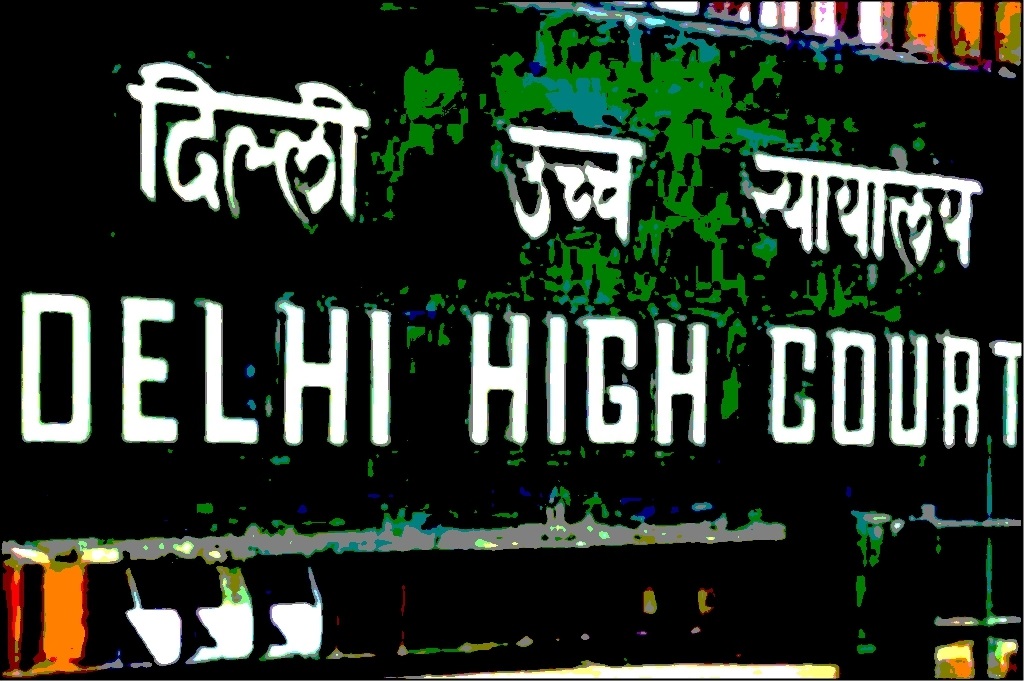
On April 21, 2022, the Delhi High Court issued notice to the Central government on a Public Interest Litigation (PIL) petition challenging the constitutional validity of the provisions of the Criminal Procedure (Identification) Act, 2022.
The bench comprising Acting Chief Justice Vipin Sanghi and Justice Navin Chawla issued notice to the Centre and directed that the reply be filed within six weeks. The bench also directed the Centre to reply on the aspect of maintainability of the petition. The matter is listed on November 16, 2022.
Central Government Standing Counsel Amit Mahajan raised an issue with respect to maintainability of the PIL.
Criminal Procedure (Identification) Act
The Lok Sabha on April 4, 2022, passed the Criminal Procedure (Identification) Bill, in 2022 with a voice vote. The Bill was strongly opposed by the Opposition members in the Parliament and their demand for sending the Bill to the Parliamentary Standing Committee was not given any consideration by the members of the treasury bench.
The Bill was passed by the Rajya Sabha on April 6, 2022 and after receiving the President’s assent, it was finally published in the official gazette on April 18, 2022.
The petition was filed by advocate Harshit Goel through advocates Yashwant Singh, Harshit Anand and Aman Naqvi, challenging the Act as being unconstitutional, illegal and void.
The Criminal Procedure (Identification) Bill, 2022 seeks to empower the National Crime Records Bureau (NCRB) of India to collect, store and preserve the record of ‘measurements’ and for sharing, dissemination, destruction, and disposal of records. It empowers a Magistrate to order any person to give the ‘measurements’ for the purpose of investigation.
The Act empowers a head constable of a police station or a head warden of jail to take ‘measurements’ of convicts as well as those in preventive detention. If the said person resists, he can be charged under the Indian Penal Code.
The Bill aims to authorise taking ‘measurements’ of convicts and other persons for the purposes of identification and investigation in criminal matters. It is to preserve records and for matters connected therewith. The definition of ‘measurement’ indicates that it is likely linked to DNA Technology (Use and Application) Regulation Bill, 2019 as well.
The PIL has challenged the validity of Sections 2(1)(a) (iii), 2(1) (b), 3, 4, 5, 6 and 8 of the Act. It asks the court to declare them unconstitutional and void.
“It is submitted that the aforesaid provisions are arbitrary, excessive, unreasonable, disproportionate, devoid of substantive due process and in violation of fundamental rights of the citizens of India as well as of the basic structure of the Constitution of India, 1950 and thus are liable to be struck down by this Hon’ble Court,” the petition said as reported by LiveLaw.
According to Section 2 (b), ‘measurements’ includes finger-impressions, palm-print impressions, foot-print impressions, photographs, iris and retina scan, physical, biological samples and their analysis, behavioural attributes including signatures, handwriting or any other examination referred to in section 53 or section 53A of the Code of Criminal Procedure, 1973.
The biometric-based measurement identification is an attempt to create unique identification numbers for each citizen of the country. The idea is to have unauthorised control over citizens by the use of these technologies. In sum the Criminal Procedure (Identification) Act, 2022 is an attempt to make India a Police State.
The words ‘biological samples and their analysis’ in the Bill could extend to narco-analysis and brain mapping and DNA tests. This is clearly violative of Article 20 (3) of the Constitution.
“Specifically, these terms are open to interpretation to include ‘measurements’ of a testimonial nature taken by way of a compelled psychiatric evaluation. Such evaluation, when it leads to any incriminating admission, would constitute a ‘testimonial compulsion’. This coercive provision therefore transgresses the right against self-incrimination, a well-established principle of our criminal justice system and mandated under Article 20(3) of the Constitution,” the plea said as reported by LiveLaw.
The provision in the Bill for retaining the ‘measurements’ for 75 years from the date of collection of data is contrary to the principles of data minimisation and storage limitation, laid down in the Puttaswamy and Aadhaar judgment. The provisions of the Bill are in violation of the Right to be Forgotten enshrined in the Right to Life under Article 21 of the Constitution. It is in opposition to the spirit of human rights and civil liberties enshrined in Articles 14, 19, and 21 of the Constitution.
“It is submitted that Sections 3 and 5 of the Act, in flagrant violation of the law laid down by the Supreme Court, allows excessive, coercive and arbitrary intrusion into the dignity of a convict as well as of an individual who may be called in for simple questioning, or who is involved in the pettiest of offences. These provisions constitute a clear attack on ‘personal liberty’ and clearly fall foul of Article 21 of the Constitution and are thus liable to be struck down,” it was submitted as reported by LiveLaw.
Another concern is that the new Act can be applied to petty crimes such as violating a prohibitory order for not wearing a mask or a traffic violation even peaceful Satyagraha. A more worrying feature of the Bill is, that a person, who has never been arrested in connection with an ongoing investigation, can be ordered by a magistrate to collect the samples of ‘measurements.’
The Act intends to link demographic and biometric information with the identification of citizens in an attempt to make all the natural citizens of India to be looked at as ‘suspects.’ The law is draconian and against the principle of civil liberties, human rights and against the tenets of Indian Constitution. It is apparent that with such an Act a permanent Emergency architecture is being constructed in the country.
Related:
The DNA Bill: A perfect recipe for absolute surveillance and zero privacy
How CIA Can Access India’s Biometric Aadhar Database: Indian Sovereignity Under Threat?